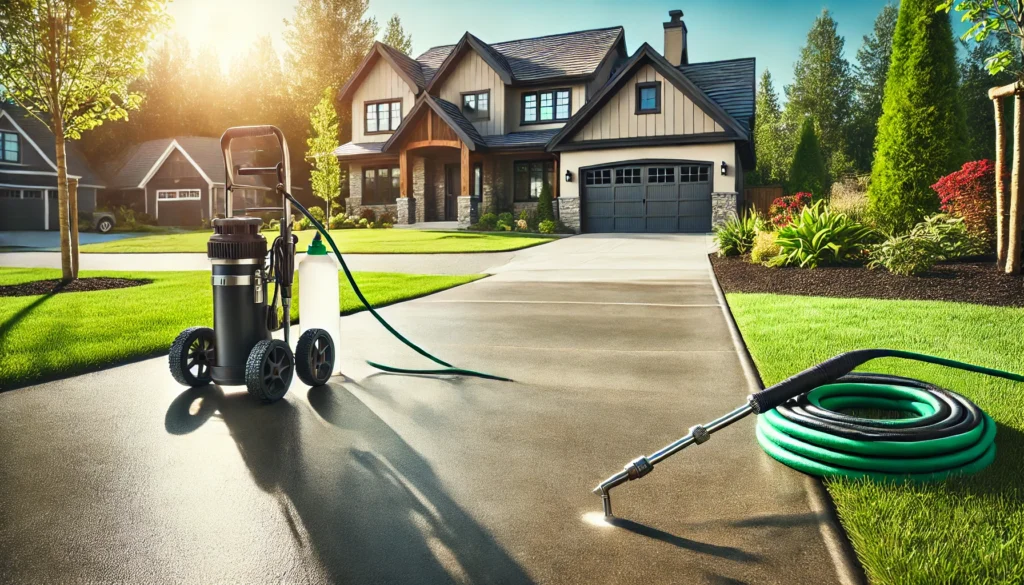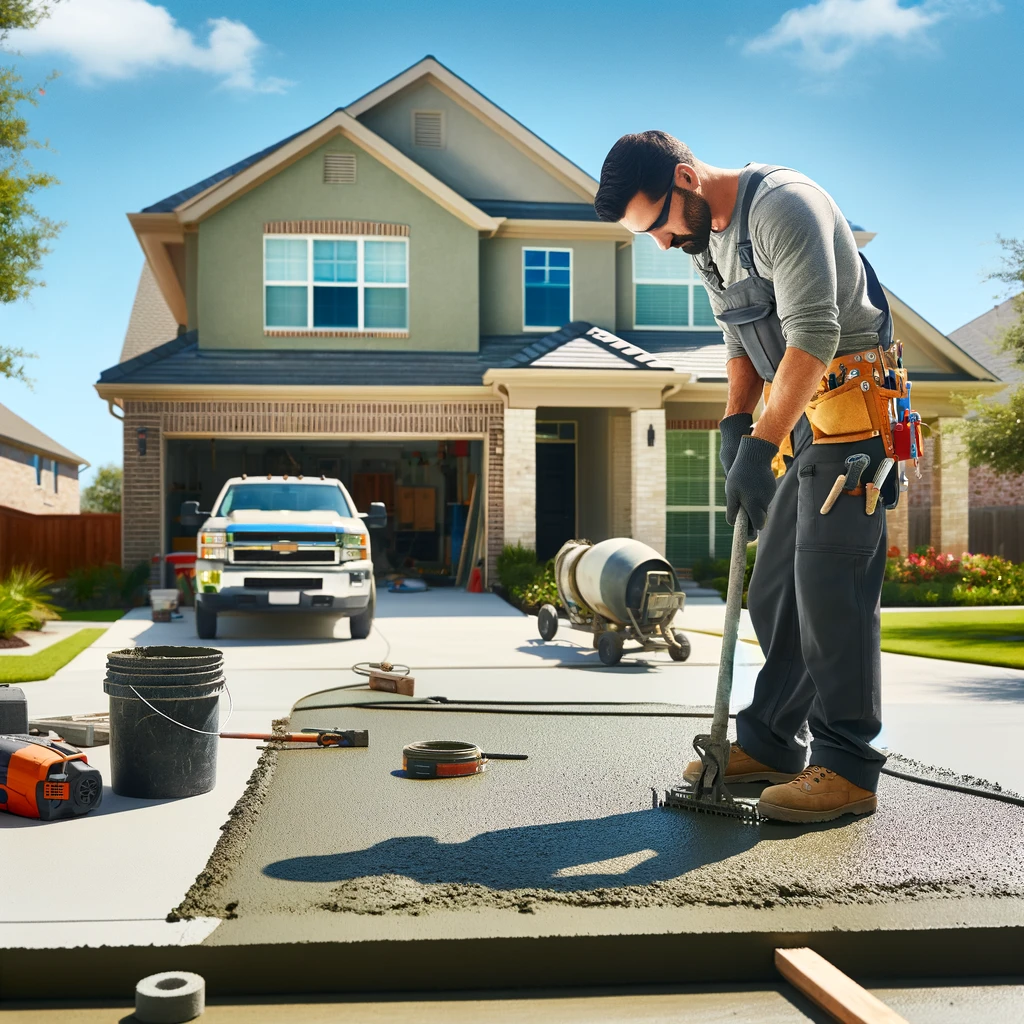Driveway Maintenance
Keeping your concrete driveway in top condition is essential for enhancing curb appeal and avoiding costly repairs. Without proper care, it can crack, discolor, and lose its visual appeal, making your home look unkempt. In this guide, we’ll walk you through the best practices for maintaining a concrete driveway, from sealing to cleaning, so it stays durable and attractive for years to come.
Why Concrete Driveways Need Regular Maintenance
Concrete is a highly durable material, but it’s not invincible. Exposure to harsh weather, chemicals, and heavy traffic can degrade its structure over time. Regular maintenance not only preserves its strength and appearance but also prevents minor issues from escalating into expensive repairs.
How to Maintain a Concrete Driveway
- Sealing Your Driveway
Concrete is porous and can absorb moisture, leading to cracks and damage. Apply a high-quality concrete sealer every 1-3 years to protect it from water and chemical penetration. Choose a sealer based on your region’s climate for optimal protection. - Regular Cleaning
Keep your driveway clean to prevent stains from oil, gas, and other substances. Use a mild detergent and water for routine cleaning, and for stubborn stains, employ a degreaser or a pressure washer. - Avoiding Chemical Damage
De-icing chemicals, such as ammonium nitrates, can severely damage concrete. Use safer alternatives like sand or kitty litter for traction, and avoid applying any chemicals in the first year after installation. - Addressing Cracks Promptly
Small cracks are inevitable over time. Fix them as soon as they appear using a concrete patching compound. Quick action prevents moisture infiltration, which can worsen the damage. - Managing Heavy Loads
Concrete driveways are designed to handle normal vehicular traffic but not heavy machinery. Avoid parking large trucks or construction vehicles to prevent premature wear and structural stress. - Protecting Expansion Joints
Expansion joints allow the concrete to expand and contract with temperature changes. Regularly inspect and reseal these joints to prevent cracks and maintain the driveway’s integrity.
Common Mistakes to Avoid
- Using Harsh Chemicals: Avoid using bleach or acidic cleaners, as these can erode the concrete surface.
- Neglecting Drainage: Ensure proper drainage around your driveway to prevent standing water, which can lead to structural damage.
- Overloading the Surface: Parking heavy vehicles repeatedly can weaken the concrete over time.
Benefits of Proper Driveway Maintenance
A well-maintained driveway not only looks good but also increases the longevity of the surface, reduces repair costs, and enhances your home’s overall value. Consistent care helps prevent safety hazards such as potholes and uneven surfaces.
Conclusion
Maintaining a concrete driveway may seem daunting, but with the right approach, it’s straightforward and rewarding. By sealing, cleaning, and addressing minor issues promptly, you’ll keep your driveway looking pristine and structurally sound for decades. Take a proactive approach to upkeep, and your investment will pay off in both aesthetics and durability.
FAQs
- How often should I reseal my concrete driveway?
Reseal every 1-3 years, depending on the climate and level of use. - What is the best cleaner for concrete driveways?
Use a pH-neutral cleaner for regular maintenance and a degreaser for tough stains. - Can I use salt on my concrete driveway in winter?
Avoid using salt, especially in the first year. Instead, use sand or kitty litter for traction. - How do I fix small cracks in my driveway?
Use a concrete patching compound to fill small cracks as soon as they appear to prevent further damage. - Is pressure washing safe for concrete driveways?
Yes, but use a low-pressure setting to avoid damaging the surface. Apply a mild detergent for better results.


